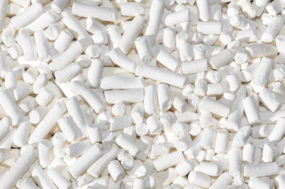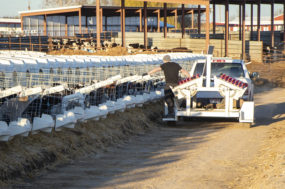The Northeast Dairy Management Conference is focused on growing the leaders of today and tomorrow. In this roundtable of New York dairy industry leaders we share thoughts of recipients of the Dick Popp Memorial Leadership Award, presented by the Northeast Dairy Producers Association (NEDPA) at the conference, and the PRO-DAIRY Agriservice Award, presented at the Great New York State Fair.
“I have had the privilege of engaging dairy farmer leaders in New York and beyond for nearly 25 years, including all of the leaders recognized in this article. Common threads among them include an entrepreneurial spirit, tremendous passion and dedication to their families and to their businesses, and a calling to serve the dairy industry more broadly for the overall good of the industry,” said Cornell CALS PRO-DAIRY Director Thomas Overton. “We are proud to recognize these leaders.”
Recipients have a humble, servant-leadership focus, with a clear desire to give back to the industry, an appreciation for learning from innovative, forward-thinking progressive people, whether they are farmers or involved in the dairy industry, and a recognition of receiving more through their service than what they give.
SERVICE
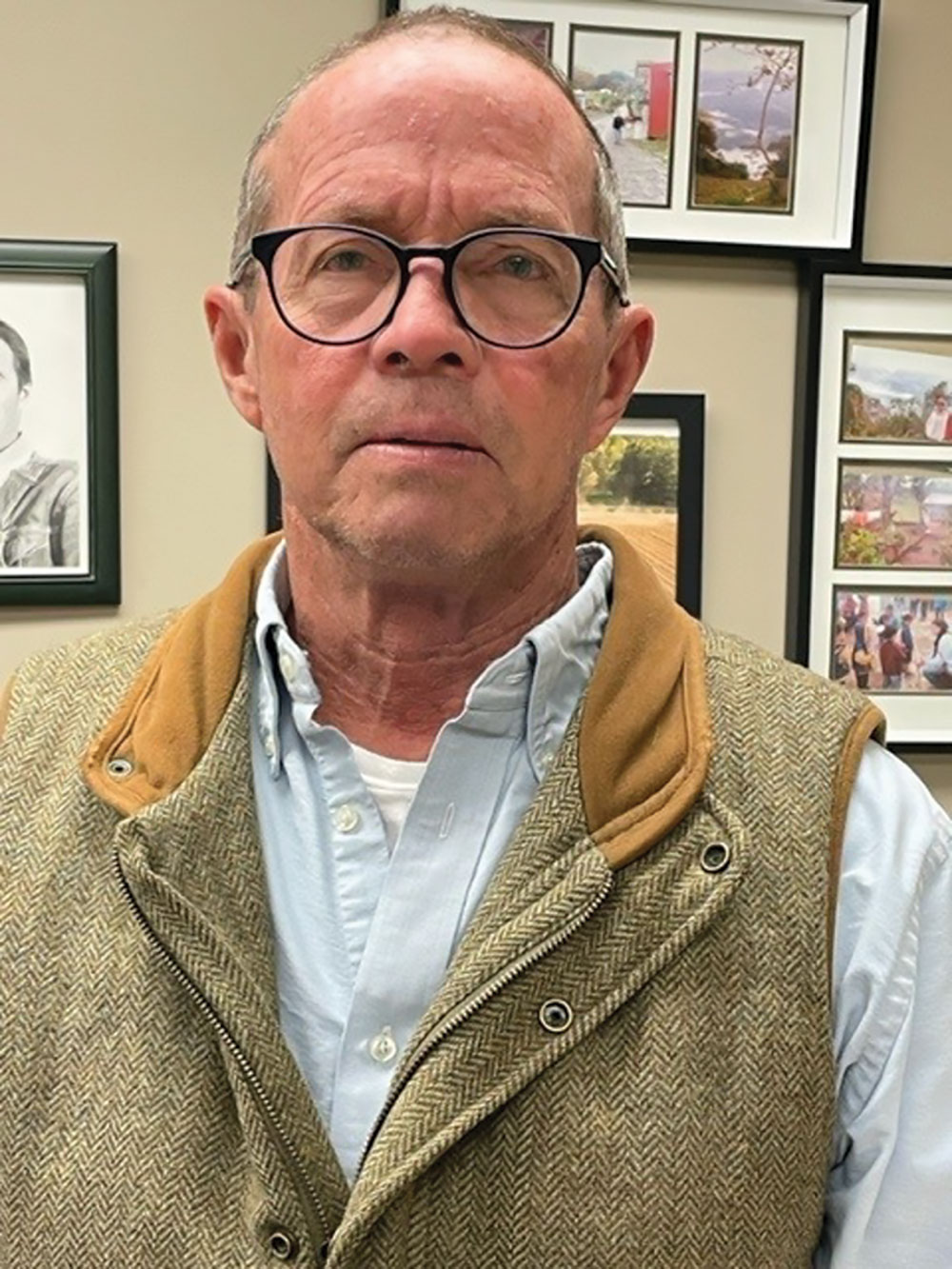 John Noble, Noblehurst Farms Inc: has served on the N.Y. and national DHIA (Dairy Herd Improvement Association) boards, the N.Y. Agricultural Society board, as a Cornell University trustee, and on various other boards. He received the Dick Popp Award in 2022.
John Noble, Noblehurst Farms Inc: has served on the N.Y. and national DHIA (Dairy Herd Improvement Association) boards, the N.Y. Agricultural Society board, as a Cornell University trustee, and on various other boards. He received the Dick Popp Award in 2022.
“Receiving the Popp leadership award was humbling, and it was exciting to look out over the audience and see so many young faces who are enthusiastic about production agriculture. I and others like me didn’t have a grand design and aren’t looking for accolades. We’re driven by learning and curiosity. Humility and a willingness to learn are key,” Noble said.
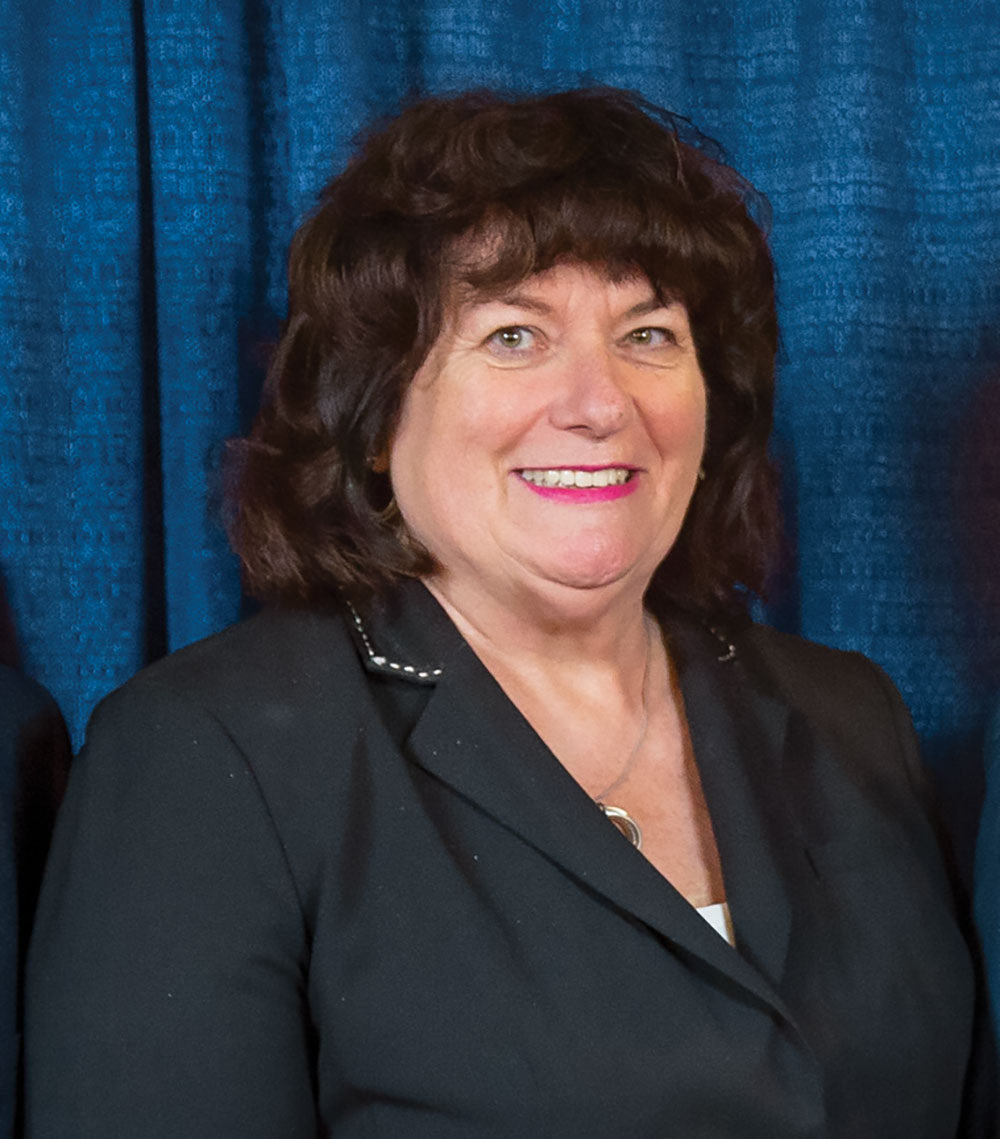 Maureen Torrey, Torrey Farms, LLC: has served the industry for over 50 years, beginning in high school where she was in charge of the veg-crop display at the state fair for 10 days, as an assistant leader in 4-H, and a N.Y. Farm Bureau (NYFB) state and then national Youth Power winner.
Maureen Torrey, Torrey Farms, LLC: has served the industry for over 50 years, beginning in high school where she was in charge of the veg-crop display at the state fair for 10 days, as an assistant leader in 4-H, and a N.Y. Farm Bureau (NYFB) state and then national Youth Power winner.
Her activity evolved and after college she was an Extension educator in Wayne County and then was the first woman hired by Chiquita to manage merchandising in their stores in western N.Y. She got bored with that job and returned to the home farm. She received the NEDPA Dick Popp Award in 2021.
“Leadership came naturally. I was and am driven by a passion for agriculture, the people, and the industry,” Torrey said.
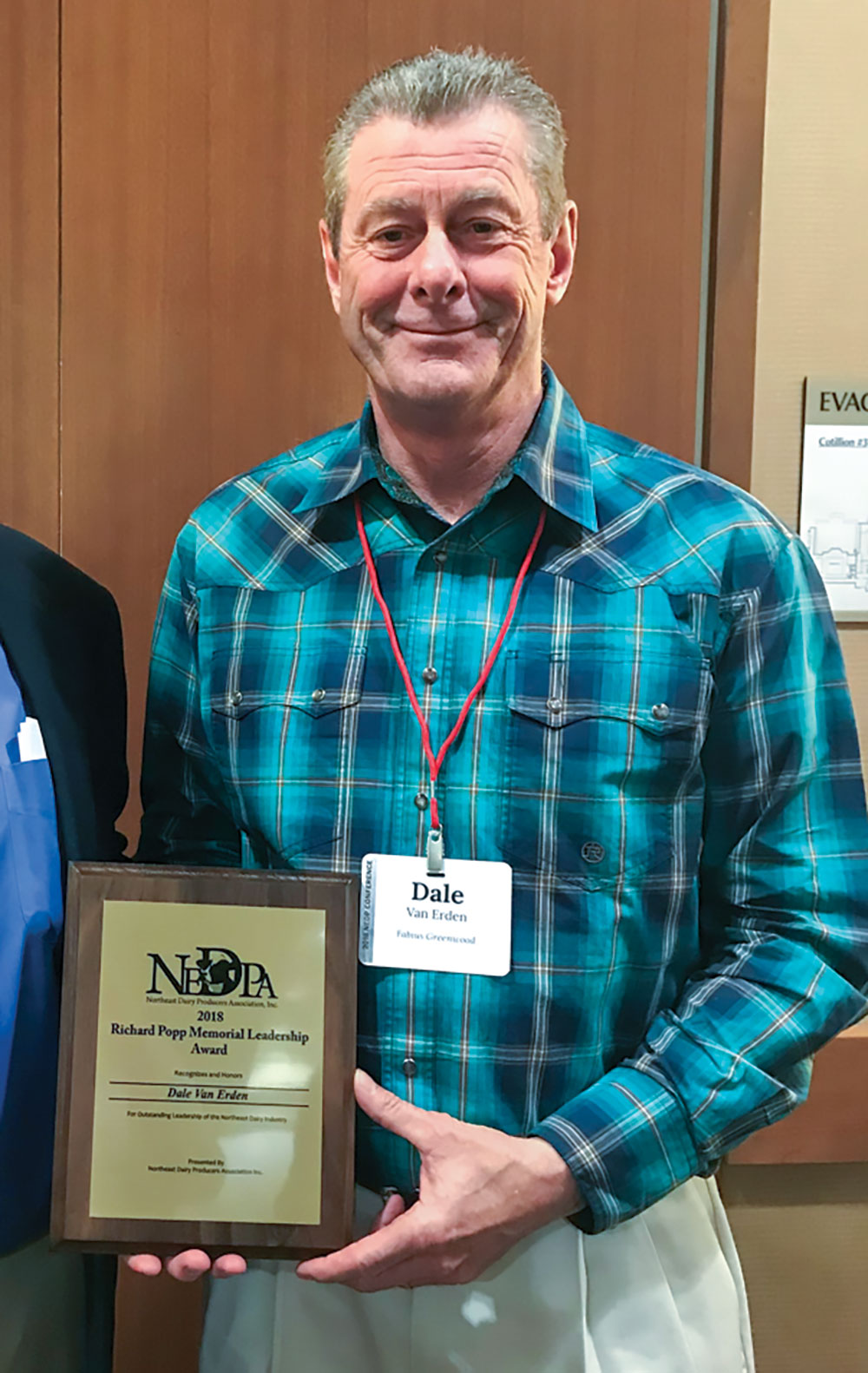 Dale Van Erden, Van Erden Family, LLC: has served nine years on the Dairylea board, on the Cayuga Marketing board, on the NEDPA board and as president, on the Fabius planning board, and on the local DHIA board as president. He received the NEDPA Dick Popp Award in 2018.
Dale Van Erden, Van Erden Family, LLC: has served nine years on the Dairylea board, on the Cayuga Marketing board, on the NEDPA board and as president, on the Fabius planning board, and on the local DHIA board as president. He received the NEDPA Dick Popp Award in 2018.
“It’s the adage that if you don’t go to the polls and vote, don’t complain. Well, if you’re not serving in the dairy industry, don’t complain about the direction,” Van Erden said.
 George Mueller, Willow Bend Farm, LLC: has served as the Ontario County Farm Bureau president, Ontario County Extension president, and on the N.Y. Farm Net board of directors. He served 20 years on the Farm Credit board of directors during the merge of Lake Ontario, Finger Lakes, Western New York, and the Southern Tier associations into Western New York Farm Credit Association. He also served as a director of Upstate Niagara for 20 plus years during the merge of Upstate Milk Co-op and Niagara Milk Co-op, and during the build of several cultured milk plants and expansion from three original milk plants to the present nine milk plants. One of his proudest accomplishments was being a founding partner, along with Dick Popp, neighbor Dale Van Erden, and other active New York dairy farmers, of the Northeast Dairy Producers Association. He received both the NEDPA Dick Popp Award (2002) and the PRO-DAIRY Agriservice Award (2018).
George Mueller, Willow Bend Farm, LLC: has served as the Ontario County Farm Bureau president, Ontario County Extension president, and on the N.Y. Farm Net board of directors. He served 20 years on the Farm Credit board of directors during the merge of Lake Ontario, Finger Lakes, Western New York, and the Southern Tier associations into Western New York Farm Credit Association. He also served as a director of Upstate Niagara for 20 plus years during the merge of Upstate Milk Co-op and Niagara Milk Co-op, and during the build of several cultured milk plants and expansion from three original milk plants to the present nine milk plants. One of his proudest accomplishments was being a founding partner, along with Dick Popp, neighbor Dale Van Erden, and other active New York dairy farmers, of the Northeast Dairy Producers Association. He received both the NEDPA Dick Popp Award (2002) and the PRO-DAIRY Agriservice Award (2018).
“The Dick Popp Award is the most precious of the awards I have received in my long career as a farmer. They said some nice things about me followed by Dick Popp’s widow and daughter presenting me with a plaque and a hug that I will forever treasure. That plaque looks down on me in my office. Dick Popp has long been my hero and the hero of the whole Northeast dairy industry. His design of dairy facilities with California style parlors and breezeways was copied when we built our own milking parlor,” Mueller said.
Mapleview Dairy LLC
Mapleview Dairy, owned and operated by the Fisher family, received the PRO-DAIRY Agriservice award in 2017.
 LouAnne (Fisher) King: The Fisher family has a history of involvement in industry organizations both locally and statewide. LouAnne served in 4-H, school, Dairy Promotion, and Jr. Holstein roles that evolved into both industry and community participation, including NEDPA, Farm Credit East, Holstein USA Legislative Affairs, local and N.Y. Dairy Promotion, and PRO-DAIRY and Cornell Animal Science advisory roles. Local involvement includes Assessment Review, Workforce Development, church, and Hospice. King has chaired some of the committees she served on and enjoys collaborating with and learning from other business owners and professionals.
LouAnne (Fisher) King: The Fisher family has a history of involvement in industry organizations both locally and statewide. LouAnne served in 4-H, school, Dairy Promotion, and Jr. Holstein roles that evolved into both industry and community participation, including NEDPA, Farm Credit East, Holstein USA Legislative Affairs, local and N.Y. Dairy Promotion, and PRO-DAIRY and Cornell Animal Science advisory roles. Local involvement includes Assessment Review, Workforce Development, church, and Hospice. King has chaired some of the committees she served on and enjoys collaborating with and learning from other business owners and professionals.
“I was taught that to have a voice you need to be present for the conversation,” King said.
 David Fisher: served starting in 4-H, and then Holstein club in high school and college. Cornell gave him connections, opportunities, and opened doors years later that he did not expect, including service on the Cornell Animal Science ag group and the CALS dean's advisory council. He also served on the NEDPA board and as chair. Locally he served on the Soil and Water Conservation District board, the County Farmland Protection board, and in many Farm Bureau roles, including county, state, and national.
David Fisher: served starting in 4-H, and then Holstein club in high school and college. Cornell gave him connections, opportunities, and opened doors years later that he did not expect, including service on the Cornell Animal Science ag group and the CALS dean's advisory council. He also served on the NEDPA board and as chair. Locally he served on the Soil and Water Conservation District board, the County Farmland Protection board, and in many Farm Bureau roles, including county, state, and national.
“It has always been expected in our family that we be involved and try to help, Fisher said.
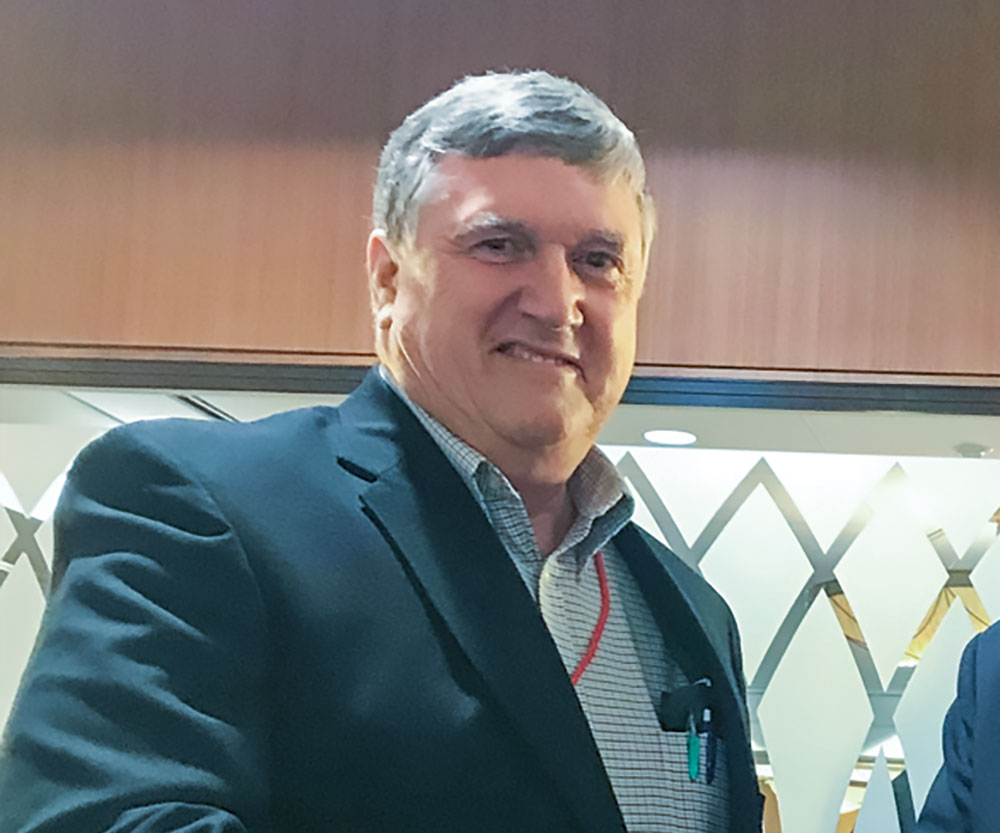 Jon Greenwood, Greenwood Dairy: has served in a number of New York Farm Bureau roles, including young farmer representative and chair, on the board and national committees, and as vice president, and also on the northern N.Y. Ag Program board, as a county legislator, and on the NEDPA board and as chair. He received the PRO-DAIRY Agriservice Award in 2016.
Jon Greenwood, Greenwood Dairy: has served in a number of New York Farm Bureau roles, including young farmer representative and chair, on the board and national committees, and as vice president, and also on the northern N.Y. Ag Program board, as a county legislator, and on the NEDPA board and as chair. He received the PRO-DAIRY Agriservice Award in 2016.
“You can’t make a difference if you don’t show up,” Greenwood said.
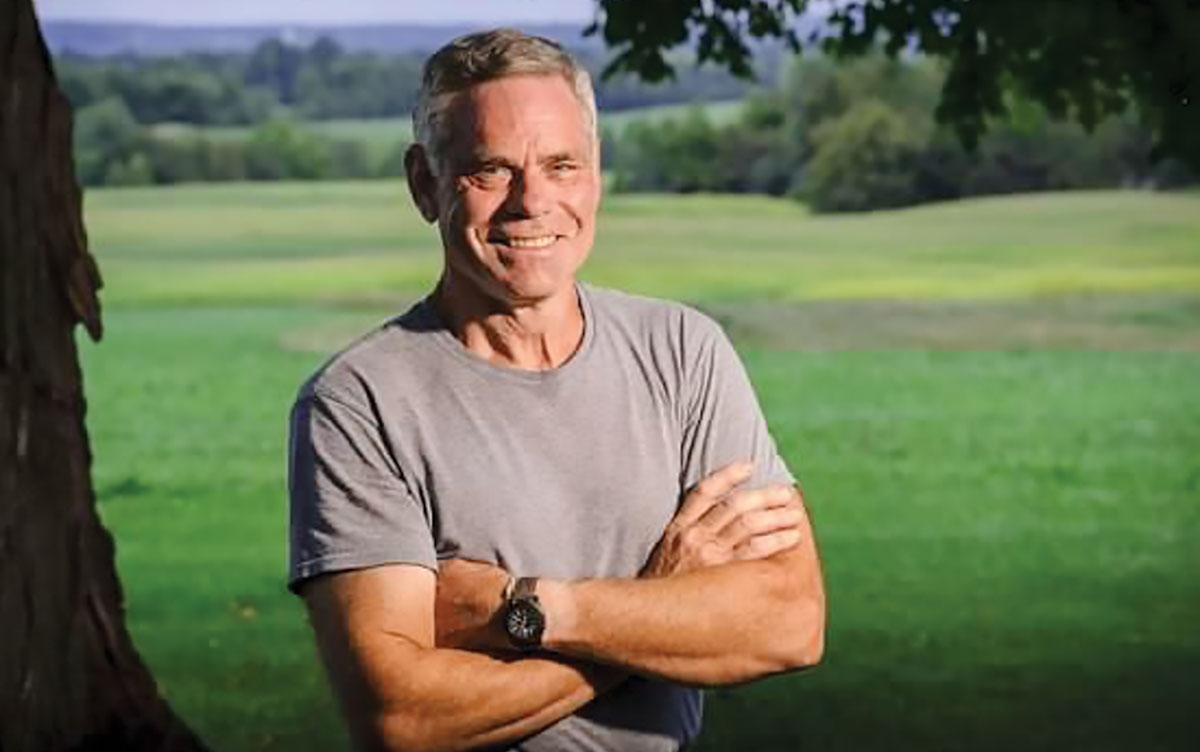 George Allen, Allenwaite Farm: has served when important issues or developments surfaced and based on individual interests. Both the N.Y. Department of Environmental Conservation and the U.S. Environmental Protection Agency were established during his college years, so Allen inadvertently had a front row seat hearing the lofty objectives set forth. It was clear to Allen environmentalism wasn’t just an enhancement of conservation practices being used in agriculture, but he had no idea how much of a shift it represented. During those years a favorite theory in academia was the certainty of a looming mini-ice age and as a student he wondered how a N.Y. dairy farmer was going to cope with that. Now the looming threats are considered something of the opposite, but the challenge to the industry remains the same; how best to respond
George Allen, Allenwaite Farm: has served when important issues or developments surfaced and based on individual interests. Both the N.Y. Department of Environmental Conservation and the U.S. Environmental Protection Agency were established during his college years, so Allen inadvertently had a front row seat hearing the lofty objectives set forth. It was clear to Allen environmentalism wasn’t just an enhancement of conservation practices being used in agriculture, but he had no idea how much of a shift it represented. During those years a favorite theory in academia was the certainty of a looming mini-ice age and as a student he wondered how a N.Y. dairy farmer was going to cope with that. Now the looming threats are considered something of the opposite, but the challenge to the industry remains the same; how best to respond
A farm accident injury and personal experiences with Workers’ Comp led Allen to an interest in establishing ag safety groups for cost control and on-fam safety awareness and training.
Allen values information exchange and sharing in the industry and has been active in local Cooperative Extension and was a proponent of PRO-DAIRY’s development. He also supports attracting the next generation of agriculturalists through 4-H and FFA.
“Especially after the passage of the Swampbusters legislation in 1985, in which preservation of wetlands became a priority, and the on-going encroachment of suburbia onto farmland the question continues of where do agricultural lands and productivity fit into the national interest? We have found all sorts of ways to preserve forests, battlefields, unique landscapes, recreation, and even swamps. Meanwhile cropland, especially reasonable level cropland, continues to be considered idle or vacant waiting for something ‘useful to happen to it’. Establishing a land trust for the purpose of protecting ag lands as a local response became another endeavor,” Allen said. He received the PRO-DAIRY Agriservice Award in 2012.
“Much of this might better be termed active participation; leadership sometimes a consequence,” Allen said.
WHY BECOME INVOLVED?
John Noble: Serving in leadership positions gave me an opportunity to interact with others who were “heading to where the puck was going”. When you interact with others who are innovative and pushing the envelope it is stimulating. You bring that back to your own business and use it to propel it forward. For example, in my early career I worked with spectacular leaders in dairy who were on the DHIA board. People like Dick Popp, Dave Porter, Dale Van Erden, Ron St. John, and others. It was out of that interaction about current nutrient management issues that the Northeast Dairy Producers Association was born.
Maureen Torrey: I could see that it was the future, if you don’t help shape the outcome, the outcome is generally less than you desire. I had many great role models around me. Laing Kennedy who became the hockey coach at Cornell was a great role model. Richard and Bob Call who helped develop the idea for ag districts to protect and promote land for farming and fellow farmers were great role models. There were strong agricultural leaders all around me. And I could see that hard work could get results and help shape the direction and future of agriculture.
I also feel it’s important to be involved in other organizations to bring more to the table from agriculture. I have participated in many other organizations as a leader (e.g., Federal Reserve Bank board), but also in a support role. It allows you to support, mentor, and grow other leaders.
Dale Van Erden: In an industry that has been good to me I feel an obligation to give back. It’s important to be proactive and be involved so you participate in the direction of our industry. Legislation, regulation, the cooperative, processing, all need to be connected back to the production of dairy.
It’s important to get involved in all of the demographics in the leadership of our industry, from small farm to large farm, from younger to older, and so forth. You need a balance in the boardroom. The Northeast faces specific challenges, from climate change, to regulation, to taxes, and geography. We need producer involvement to steer direction for the long-term and to be able to compete with other regions of the U.S. If we don’t attempt to lead and represent ourselves, someone else will, and not necessarily in a beneficial fashion.
George Mueller: I have always wanted to be a farmer since I gave up the idea of being a railroad engineer or a steam boat captain in first grade. Once involved in farming, the need to improve the industry here in N.Y. state is just good business. As leadership roles come, it is part of your responsibility to do your share to help the farm community we work in. As a participant in farmer organizations I have certainly gained much more than I have contributed. We are blessed to have the excellent farm organizations we have in N.Y.
LouAnne King: When our family was young, my involvement was locally-based, but we know that state/national/international policies and markets are impacting our industry so I am glad for the opportunity to learn, question, and contribute to these conversations, which can have an impact. Recently, my husband told a friend that I said, “We are not the wait and see kind of people”. I think that sums it up pretty well.
David Fisher: If you want to make a difference you need to be in the conversation. My parents and grandparents were always involved in more than just ag. Community and church, and our philosophy of trying to leave things better than you find them, in all aspects of life. I never went into anything looking for leadership, but just trying to make a positive impact and help the industry or organization. I have often said if I can help I will try my best.
Jon Greenwood: I have always been interested in policy issues and wasn’t seeking leadership roles, but was asked and encouraged by others who came before me. The old cliché about it’s those who show up that are heard, and that is true. There are a lot of people who would speak up on your behalf who don’t necessarily hold the same views.
George Allen: I don’t know if I ever thought about it as a choice. Rather, I think, following the example of my parents and grandparents.
VALUE OF SERVICE
John Noble: It broadens your experience and gives you the opportunity to see what others are doing as well and deepens your understanding of all the pieces tied into production agriculture. For example, LEAD NY helped me to better understand food systems on a broader level. These kinds of experiences help put the pieces of the puzzle together and contribute to the vision for your business and where it fits in the future. By far you receive more value than you give when you engage in your industry.
Maureen Torrey: The value has been tremendous. I’ve gained a lot of knowledge and I’ve watched people I’ve mentored blossom, shaping policy, and impacting agriculture for this generation and the next. I’m still hopeful for immigration reform. I value bringing commodity groups together and my experience from the vegetable to the dairy side. Seeing Agricultural Workforce Development come to fruition has been rewarding. The people and friendships I’ve made have been tremendous. There’s value in the grassroots experiences. Interacting with people in government positions brings a lot to the table for our agricultural industry. It’s important for people to be engaged and represent their industry, even if for a short time.
Dale Van Erden: You learn a lot from other people and about the other pieces in the dairy industry. It connects production agriculture back to industry. Leadership roles contributed to my personal development and I was able to take that back to my business. It helps develop a vision for the future of your business.
George Mueller: By meeting with fellow farmers who have their farms under control enough to attend meetings is always an educational experience. Getting to know other progressive farmers, and being invited to visit, is a great method to promote the sharing of ideas in our dairy industry and our whole ag industry. We are blessed in our state to have a strong Extension system, and all the other farm organizations that have meetings and publications to help us share ideas to improve our farm and our industry. My participation and modest leadership in organizations has kept me abreast of latest happenings and events in our industry. As a city boy who wanted to be a farmer I could not have been more blessed than by an ag community that welcomed me in if I was willing to work hard. Also marrying Mary Lue Morgan, a farmer’s daughter, sure helped my career. In a small way we have tried to keep farming open and welcoming to others who also have the same strong desire.
LouAnne King: I have learned so much from listening and interacting with other managers, public figures, and peers. I have gained a better understanding of what influences the industry and our communities.
David Fisher: Just getting away and having time to think about the farm while not there or traveling is good for me. Meeting and learning from others, hearing different ideas and perspectives, I have stolen so many ideas from others. The outside the box thinking of so many speakers at meetings gives a very different perspective when returning to the farm. Just being around other wonderful successful business people makes it fun and challenging. Most rewarding is being able to see something that has been advocated for has an impact.
Jon Greenwood: I was able to meet with a lot of great, knowledgeable people, and ask questions that helped in my business. It is eye-opening, especially for someone who didn’t grow up on a farm. Working on a board is different from running a business. You learn patience and how to bring people along with you. There’s value in learning that process to impact issues and make a difference. For example, in N.Y. I believe we have good, workable CAFO policy around nutrient management that farmers are able to work with and which contributes to good water quality. This came from farmers and other key stakeholders working with our regulating agencies.
There are a lot of dedicated and talented people working in the industry. They are great people to be around and when you can leave re-energized and invigorated it’s a great feeling and contributes in a positive way to your business.
George Allen: On the family level, the most meaningful aspect is participating in activities that can make this industry an attractive alternative out of many from which to choose for the next generation, not an albatross hung on them. These activities increasingly involve issues that cannot be solved single-handedly and that’s where the value of investing time with others in seeking solutions accrues. We often are not in the position of being able to set the agenda, but we do not have to be subservient to it, which is exactly what happens when we don’t effectively state our case.
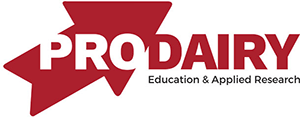 |
This article appeared in PRO-DAIRY's The Manager in July 2022. To learn more about Cornell CALS PRO-DAIRY, visit PRO-DAIRY. |



